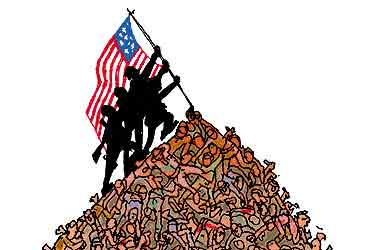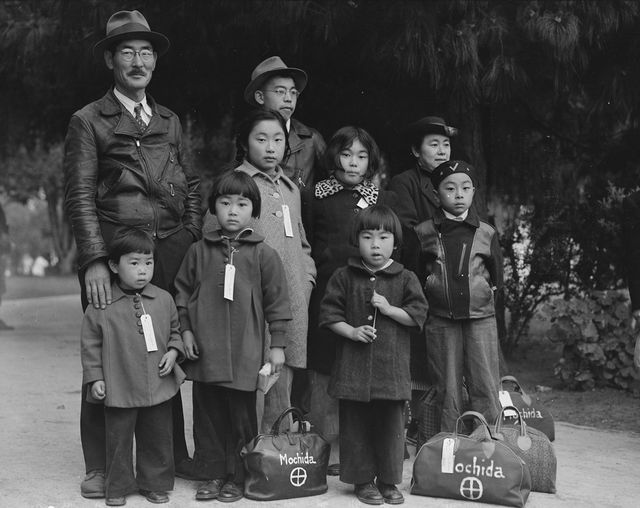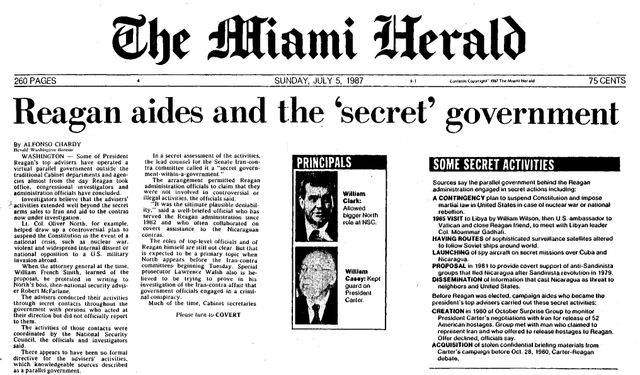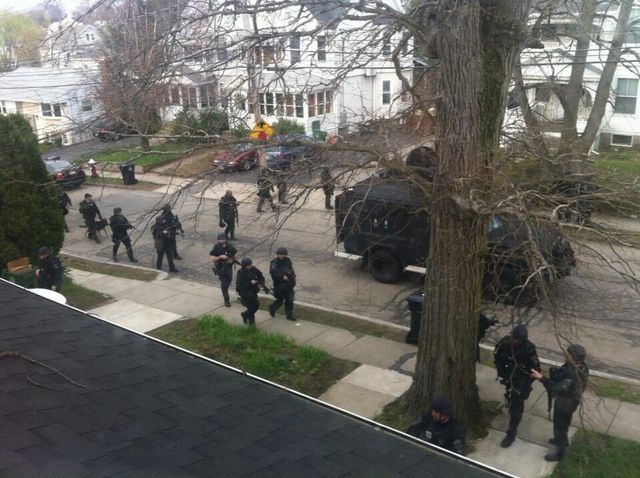The Pentagon’s Law of War Manual: Justification for War Crimes and Mass Repression
Part IV

This is the last of four articles analyzing the new US Department of Defense Law of War Manual. The first article was posted November 3. The second article was posted November 4. The third was posted November 5.
Pentagon embraces “just following orders” justification for war crimes
As previous segments have noted, key conceptions advanced in the Pentagon’s Law of War Manual amount to little more than a rehash of authoritarian legal theories upheld by the Nazi regime and other fascist governments.
The Department of Defense (DOD) manual’s protocols for enforcing the law of war and establishing the legality of military orders fall into this category, bearing an eerie resemblance to the doctrine asserted by the main defendants at the Nuremberg Tribunal—that they were “just following orders.” In flat contradiction to the principles upheld at Nuremberg, subordinates are instructed to “presume” that commands are lawfully issued and are granted sweeping immunity from responsibility for war crimes committed under orders from the military brass.
US military personnel are instructed and trained to regard orders emanating from the command unit as legal by default, the DOD manual states. The document states: “Subordinates, absent specific knowledge to the contrary, may presume orders to be lawful. The acts of a subordinate done in compliance with an unlawful order given by a superior are generally excused.” (P. 1,148)
“Except in such instances of palpable illegality, which must be of rare occurrence, the inferior should presume that the order was lawful and authorized and obey it accordingly,” one footnote declares, citing Winthrop Military Law and Precedents in defense of this position. (P. 1,058f)
 Image: Lt. Col. Oliver North testifying during the Iran-Contra congressional hearings in 1987
Image: Lt. Col. Oliver North testifying during the Iran-Contra congressional hearings in 1987
In cases of ambiguity, junior officers are encouraged to concoct an “interpretation” of orders that might render them more lawful. “Commands and orders should not be understood as implicitly authorizing violations of the law of war where other interpretations are reasonably available,” the manual states.
The authors write that the law is enforced through “military instructions, regulations and procedures” issued by the Pentagon. “The implementation of law of war treaties and obligations through military instructions, regulations, and procedures has the effect of making such rules enforceable because military personnel are required to comply with duly issued instructions, regulations, and procedures,” the manual states. (P. 1,069)
These formulations point to the fact that there is no real distinction between the decrees of the Pentagon bureaucracy and the DOD “Law of War”, which, far from being actual law, is merely a special collection of military orders issued by cabals of military lawyers and career defense officials.
Planning for mass repression at home
In addition to its international significance, the Law of War Manual summarizes and integrates plans for mass repression and martial law within the US itself that have been developed since the late 1960s by the US Defense Department in direct response to the political radicalization of the working class and layers of the middle class.
The procedures governing mass detention enumerated in the Law of War Manual have already been partially worked out by numerous agencies and programs run by the Department of Defense Civil Disturbance Directorate, the Federal Emergency Management Agency (FEMA), and the Department of Homeland Security, which now incorporates FEMA.
The driving impetus behind these preparations has been the threat of insurrectionary struggles by the working class and the associated growth of anti-war sentiment within the population.
In the aftermath of the 1967 urban upheavals, DOD established the Directorate of Civil Disturbance Planning and Operations as a permanent body to oversee plans for suppression of domestic unrest by federal troops.
 Image: The Mochida family awaites evacuation to an internment camp in 1942
Image: The Mochida family awaites evacuation to an internment camp in 1942
Beginning in 1968, US military planners developed frequent updates to the US Army Civil Disturbance Plan, codenamed “Operation Garden Plot.” Updated on an almost yearly basis since then, Garden Plot calls for the rapid deployment of federal military forces to every major city in the US, with initial contingents of troops scheduled to arrive within six hours of call-up. The plan was touted by its original architects as a “counterrevolutionary” response to the mass strikes, anti-war protests, ghetto uprisings, and radicalization of university campuses during this period.
Garden Plot operations were to be activated in response to “strikes, civil disturbances and labor disturbances which affect military installations or other strikes or labor and civil disturbances of sufficient magnitude to indicate a probable employment of Federal troops to preserve or restore order.”
The document continued:
“Civil disturbances which are beyond the control of municipal or state authorities may occur at any time. Dissatisfaction with the environmental conditions contributing to racial unrest and civil disturbances and dissatisfaction with national policy as manifested in the anti-draft and anti-Vietnam demonstrations are recognized factors within the political and social structure. As such, they might provide a preconditioned base for a steadily deteriorating situation leading to demonstrations and violent attacks upon the social order.”
Garden Plot called for “saturation of areas with police and military patrols,” continuous helicopter sorties over targeted areas, and deployment of artillery, tanks, tactical air support and psychological warfare against demonstrators in US cities.
“Disturbances requiring Federal intervention will occur simultaneously in up to 25 objective areas throughout the CONUS [continental United States], necessitating the employment in each objective area of up to five 2,000-man brigades plus supporting troops, with the exception of Washington, D. C., when forces totaling 30,000 troops may be employed,”
the plan stated. (Quoted from “US Department of the Army Civil Disturbance Plan ‘GARDEN PLOT’ 10-September-1968”).
Planning for Continuity of Government (COG), a euphemism for martial law, “assumed its current shape in response to the mobilization of US Army intelligence and the CIA against left-wing Americans during the civil disorder of the 1960s and 1970s,” as Peter Dale Scott noted in his study of the growth of the military-intelligence apparatus during the postwar era (9/11: Wealth, Empire and the Future of America, 11).
To provide intelligence for domestic counterinsurgency operations, during the 1960s and 1970s the DOD oversaw the establishment of Emergency Operations Centers (EOC), staffed by cells of federal military intelligence analysts maintaining constant communication with the Pentagon’s “domestic war room” in National Guard headquarters across the country.
These initiatives were jumpstarted in May 1971 with the establishment of the California Specialized Training Institute (CSTI), authorized by then-Governor Ronald Reagan. Between 1971 and May 1975, more than 4,000 officials from the National Guard, the Army, police agencies and private corporations received training in “emergency preparedness” at the CTSI in San Luis Obispo.
As the social counterrevolution gained steam after 1975, martial law planning was steadily embedded in the upper reaches on the state apparatus and institutionalized through further executive orders.
FEMA and REX 84
The past four decades have witnessed a feverish build-up of authoritarian legal and political instruments that have been entrenched as a permanent part of the executive branch. Virtually every year has seen new orders and protocols developing the scaffolding of a police state.
The duration and continuity in such planning demonstrates that it is not simply the initiative of this or that reactionary bourgeois politician, but rather something that emerges organically from class relations within the United States and the deteriorating position of American imperialism in the world.
The Law of War Manual expands upon existing DOD plans authorizing mass detention of US citizens, dating from at least the 1970s. The 1978 update of the US Army Civil Disturbance Plan called in no uncertain terms for DOD to prepare to establish detention camps in liaison with state and local agencies.
“Plans for detention assistance to civilian authorities will range from the absolute minimum, such as assisting civil police in the guarding of civilians apprehended and awaiting transfer or en route to detention facilities, to the establishment and operation of temporary detention facilities to supplement those operated by civil authorities,”
the document stated.
The civilian apparatus of the US government was increasingly remodeled over decades to serve as the administrative wing of the emerging military dictatorship-in-waiting. Executive decrees issued by the Carter administration consolidated civil and military planning for “national emergencies” under the control of the newly created Federal Emergency Management Agency (FEMA). Executive Order 12148, signed by President Carter in 1979, mandated continuous joint preparations by FEMA and DOD aimed at “civil defense planning.”
 Image: The Miami Herald of July 5, 1987 documented the existence of a “parallel government behind the Reagan administration engaged in secret actions including … a contingency plan to suspend the Constitution and impose martial law in United States in case of nuclear war or national rebellion.”
Image: The Miami Herald of July 5, 1987 documented the existence of a “parallel government behind the Reagan administration engaged in secret actions including … a contingency plan to suspend the Constitution and impose martial law in United States in case of nuclear war or national rebellion.”
In the early 1980s, the Reagan administration presided over a further entrenchment of martial law planning cadres within the highest levels of the executive branch. In 1981, CTSI lead planner Colonel Louis Giuffrida was appointed “emergency czar” by President Reagan.
Giuffrida had attracted favorable attention from political forces assembled around the future President Reagan for his role in the development of the CTSI and his US Army War College thesis paper, “National Survival/ Racial Imperative,” which envisioned plans for detention of millions of “American Negroes” in “assembly centers or relocation camps.”
In December 1982, Reagan approved the formation of the Emergency Mobilization Preparedness Board (EMPB) to serve as a planning body for an expanded “Civil/Military Alliance in Emergency Management,” headed by FEMA and DOD.
It was while sitting as a member of the EMPB that Lt. Colonel Oliver North of Iran-Contra notoriety developed the REX 84 plan, a major precursor to the 2015 Law of War Manual.
As described by Alfonzo Chardy, a journalist who exposed the plans in a 1987 article for the Miami Herald, REX 84 outlined procedures for “suspension of the Constitution, turning control of the government over to the Federal Emergency Management Agency, emergency appointment of military commanders to run state and local governments, and declaration of martial law during a national crisis.”
Public exposure of REX 84 by Chardy and its mention during a congressional hearing on the Iran-Contra scandal, which involved the secret and illegal funding of the Nicaraguan Contras by the US government, did not succeed in slowing the elaboration of the legal and political foundations for direct military rule.
Expanding upon the Carter administration’s Executive Order 12171, Executive Order 12681, signed by President George H. W. Bush in 1989, exempted FEMA’s National Preparedness Directorate from the National Labor Relations Act, authorizing FEMA to develop forced labor programs and oversee the direct takeover of sections of the economy by the military and intelligence agencies.
The twenty-five years since the dissolution of the Soviet Union have witnessed a further intensification of preparations for military occupation of the continental United States. The Bush I, Clinton, and Bush II administrations all oversaw large-scale mobilizations of the US military against the domestic population.
In April 1992, the Bush I administration ordered thousands of federal soldiers, Marines and intelligence agents to occupy Los Angeles in response to the riots that began on April 29. During the Republican National Convention in August of 2000, DOD placed federal military units on standby “to execute Operation Garden Plot and quell any serious civil disturbances,” according to confidential FEMA documents acquired by Wired News. (Declan McCullagh, US military poised to respond to attack on GOP convention, Wired News, August 2000)
In April 2002, the Bush administration authorized the creation of the US Northern Command (NORTHCOM) as part of a new “Unified Command Plan.” NORTHCOM, the first full-blown US military command focusing on the continental United States, was the descendant of military commands tasked with preparing and developing Garden Plot over the previous period. A NORTHCOM planning document leaked in 2010, titled CONPLAN 3501, showed that the command had rapidly developed a highly detailed division of labor for military occupation of the continental United States during the years following its formation.
Conclusion
The Law of War Manual is a watershed in the breakdown of American bourgeois democracy and the repudiation by the ruling elite of the democratic principles laid down in the Constitution. Outside of a brief protest by the New York Times, in a single editorial, the corporate-controlled media has said nothing about the new codification of Pentagon doctrine. Nor have any of the presidential candidates, Republican or Democratic, from the “libertarian” Rand Paul to the supposed “democratic socialist” Bernie Sanders.
As envisioned by the manual, the US military apparatus becomes the ultimate legal authority on the planet, making up and modifying its own “laws” in the course of military operations aimed at subjugating the entire world population to its dictates.
Rather than the outcome of megalomania on the part of US generals and officials, the manual flows from the objective logic of the development of capitalism as a world-historic social formation.
As Vladimir Lenin explained in his epochal work, The State and Revolution, beginning from the late 19th century, the development of the capitalist state in general has been characterized by the “perfecting and strengthening of the ‘executive power,’ its bureaucratic and military apparatus.”
 Image: Military forces ding house-to-house searches during the Boston lockdown in April, 2013 [Photo: rilymoskal7]
Image: Military forces ding house-to-house searches during the Boston lockdown in April, 2013 [Photo: rilymoskal7]
Despite differences in the forms of government of various capitalist nations, Lenin explained, there remains a clear universal tendency toward the increasing centralization of power in the hands of the vast and permanent bureaucracies that constitute, in every capitalist state, a veritable “permanent government” that remains in power no matter which parties or individuals have won the latest round of elections.
In another of his central works, Imperialism: The Highest Stage of Capitalism, Lenin identified the essential economic processes driving this development. From the 1870s onward, the growth of monopolies and the extraction of super-profits from colonial or semi-colonial countries ensured the ever-greater concentration of wealth and power in the hands of financial oligarchies.
As Leon Trotsky, co-leader with Lenin of the Russian Revolution, explained in the Manifesto of the First Congress of the Comintern, the major US and European finance houses integrated themselves with the military agencies of the bourgeois state during and after the First World War. “Finance capital, which plunged mankind into the abyss of war, itself underwent a catastrophic change in the course of this war,” Trotsky wrote in 1919.
“During the course of the war, the regulating-directing role was torn from the hands of these economic groups and transferred directly into the hands of the military-state power. The distribution of raw materials, the utilization of Baku or Rumanian oil, Donbas coal, Ukrainian wheat, the fate of German locomotives, freight cars and automobiles, the rationing of relief for starving Europe—all these fundamental questions of the world’s economic life are not being regulated by free competition, nor by associations of national and international trusts and consortiums, but by the direct application of military force, for the sake of its continued preservation.
“If the complete subjugation of the state power to the power of finance capital had led mankind into the imperialist slaughter, then through this slaughter finance capital has succeeded in completely militarizing not only the state but also itself; and it is no longer capable of fulfilling its basic economic functions otherwise than by means of blood and iron.” (The First Five Years of the Communist International, Volume 1, P. 46)
With these conceptions, Trotsky and the Third International had already recognized the main tendencies of imperialist development that would dominate the interwar years and reach new heights during the post-World War II era.
With the passage of the National Security Act of 1947—legislation drawn up by Wall Street’s favored law firms that created the Central Intelligence Agency, the National Security Council, and the US Air Force—the major US banks laid the foundations for the growth of a permanent “national security state” on a scale far beyond anything that had existed when Lenin first wrote of the “perfecting” of the bourgeois state.
The closing decades of the 20th century and the first 15 years of the 21st have witnessed an explosive growth of social inequality, as the US ruling class turned to financialization and dismantled vast sections of industry. Under these conditions, the Law of War Manual amounts to nothing less than a call for “all hands on deck” in defense of the capitalist order. Engaged in a relentless counterrevolutionary offensive that is destroying the living conditions of the vast majority of the global population, and facing an American population that is increasingly hostile towards all of the official institutions, the military chiefs in Washington and their paymasters on Wall Street are preparing to defend their privileges by means of dictatorship at home and total war internationally.
Concluded

